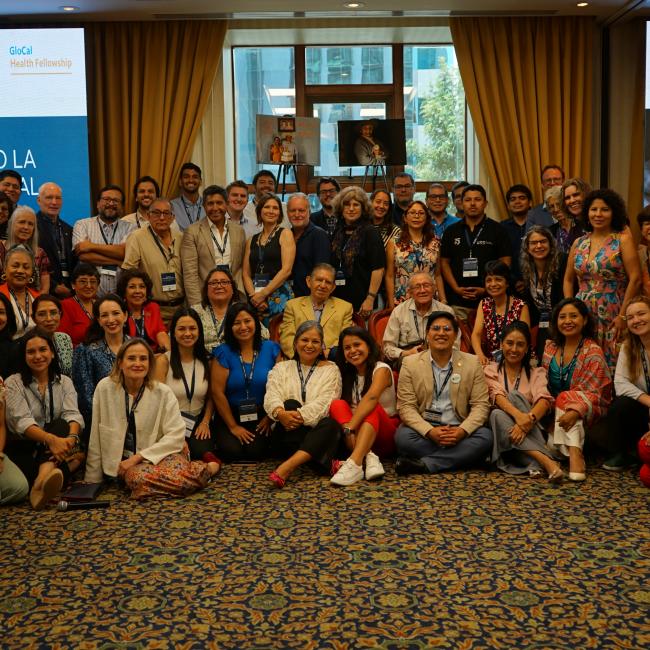Increasing Diversity in Autopsies for Neurodegenerative Research

To understand the differences between us, a key step is to examine them.
On January 18, the Global Brain Health Institute (GBHI) and the University of California, San Francisco (UCSF) School of Medicine announced Charles Windon, Assistant Professor of Clinical Neurology at UCSF and GBHI faculty member, as a winner of the 2022 GBHI Equity Award from UCSF.
The project, "Increasing Diversity in Autopsy Cohorts: A Pilot Project in One Community," seeks to increase representation of African Americans of all socioeconomic backgrounds in the autopsy cohort—that is, the brains donated for post-mortem examination—to the UCSF Memory and Aging Center (MAC). Windon will co-lead the project with Salvatore Spina, Assistant Professor of Neurology at UCSF and GBHI faculty member.
“I look forward to being able to perform this work that will hopefully begin to address the disparities that exist in our autopsy cohort, ultimately fostering more inclusive and equitable research,” said Windon.
Estimates indicate that the majority—greater than 90 percent—of the brain donors to Alzheimer’s Disease Research Centers are non-Latino white individuals with high levels of educational attainment and socioeconomic status.
I look forward to being able to perform this work that will hopefully begin to address the disparities that exist in our autopsy cohort, ultimately fostering more inclusive and equitable research.
—Charles Windon, GBHI Faculty Member
By contributing to the diversity of the UCSF MAC autopsy cohort and providing the framework for future efforts—particularly the Latino, Asian American Pacific Islander, and Native American communities, who are also underrepresented—the researchers expect the project will advance population health equity by increasing the usefulness of dementia research for a broader group of people.
“Increased diversity of autopsy cohorts is key to advancing our understanding of neurodegenerative conditions,” said Spina. “Unfortunately, the autopsy cohorts of most Alzheimer’s Disease Research Centers lack racial, ethnic and socioeconomic diversity and are not fully representative of the true population.”
Neuropathology is crucial to dementia research as it is the only available diagnostic gold-standard and it helps researchers understand disease at a molecular level.
"A growing number of studies are showing that the biology of dementia is different in whites and non-whites," said Lea Tenenholz Grinberg, Associate Professor of Neurology and Pathology at UCSF and GBHI faculty member. "For instance, an APOE4 allele—a genetic factor that affects how we age—is the greatest genetic risk in non-familial Alzheimer’s. However, the harmful effect of APOE4 is attenuated reduced in people of African descent, compared to those of European descent. We need to understand these differences better to create tailored diagnosis and treatment approaches."
This project could provide tools for the Atlantic Fellows for Equity in Brain Health as it will enable research projects to use pathology data from more diverse populations. Atlantic Fellows will also be encouraged to participate in community facing work in this project, thereby helping them build communication skills to engage diverse populations around brain health.
Sponsored by GBHI, the Equity Award aims to support a faculty member’s research or programming related to population health and/or health equity. In addition to award funds of 20,000 USD, Windon will join a group of scholars across UCSF to share experiences and achievement in this space.
The Equity Award is coordinated with the Population Health and Health Equity Scholars Award presented by UCSF’s Vice Dean for Population Health and Health Equity, Kristen Bibbins-Domingo, and the Dean of the School of Medicine, Talmadge King. It is representative of GBHI’s continued commitment to equity.
Read more:
Authors

Niall Kavanagh
Communications Officer
GBHI Members Mentioned

Charles Windon, MD
Assistant Professor of Clinical Neurology

Salvo Spina, MD, PhD
Associate Professor of Neurology

Lea Tenenholz Grinberg, MD, PhD
Professor of Neurology and Pathology




